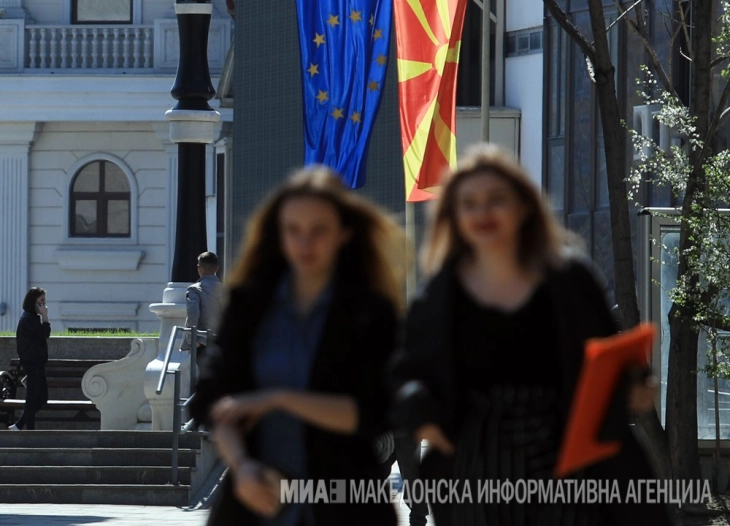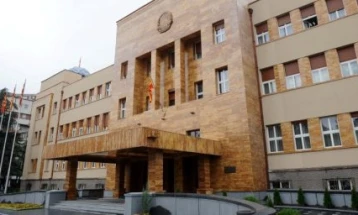President: Two things crucial for country: maintaining stable inter-ethnic relations and continuation of EU integration
- After our elections next year, regardless of what the Macedonian citizens will decide, two things are crucial for the country: maintaining stable inter-ethnic relations and the western orientation in foreign policy, that is, continuation of the integration in the EU, said President Stevo Pendarovski on Tuesday.

Skopje, 19 December 2023 (MIA) - After our elections next year, regardless of what the Macedonian citizens will decide, two things are crucial for the country: maintaining stable inter-ethnic relations and the western orientation in foreign policy, that is, continuation of the integration in the EU, said President Stevo Pendarovski on Tuesday.
"Our priority should be through a constant political dialogue between the government and the opposition to increase the internal potential for reaching consensus on important national issues, and in that segment this year a kind of paradox happened: in March, the international community, believing in our capacities, entrusted us with the organization of the Belgrade-Pristina dialogue, and, at the same time, without the assistance of that same international community, through the Jean Monnet dialogue, we would not have managed to harmonize the new Rules of Procedure of the Assembly," said President Pendarovski in the annual address in Parliament.
Next year in Brussels and in Washington, our key strategic partners, he added, election cycles will be held on the outcome of which many things will depend.

"The growth of populism in Europe is not new, but, as never before, populist forces are gaining political weight and influence in the processes that are affecting our country. All this is happening against the backdrop of the war in Ukraine, the conflict in the Middle East and the geostrategic competition between the two key factors in international relations. Predictions are that these trends will not change significantly even in 2024," said Pendarovski.
According to him, Russia’s aggression against Ukraine has disrupted the world’s food and energy markets, but above all the security infrastructure in Europe created after the fall of communism.
"Although the Western Balkans is apparently far enough from that part of the world, it cannot be ruled out that in a certain context an increase in tensions is also possible in our region in which there are Ukrainian refugees, Russian citizens and companies formed by them, an increased intensity of cyber-attacks, and the old, fragile points in the region also have their potential: the north of the Republic of Kosovo and the Republika Srpska entity in Bosnia and Herzegovina, where the international missions in which we participate have a key stabilizing role," noted Pendarovski.
Photo: MIA archive/Screenshot







